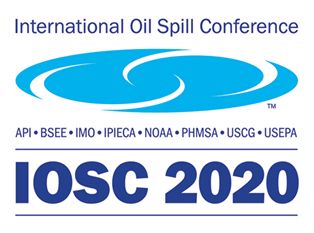OR&R Prepares for IOSC Short Courses
FEBRUARY 17, 2020 — In a few months, over 1,500 professionals from the international spill response community will gather at the International Oil Spill Conference and Exhibition (IOSC 2020) in New Orleans, Louisiana.
This triennial event provides an excellent opportunity to foster and strengthen relationships with government and industry partners, to share experiences, and keep up-to-date with the latest developments and technologies.
As part of this effort, IOSC offers thirteen Short Courses for delegates, of which scientists from OR&R will teach or co-teach the following four. We expect the discussions will be practical, informative, and lively, so come join us!
An Introduction to the Environmental Unit (EU) for Non-EU Personnel
This course aims to educate personnel who normally fill other Incident Command System (ICS) positions about the roles and responsibilities of the ICS Environmental Unit (EU); how those roles/responsibilities relate to other positions inside and outside of the ICS; and how the EU influences decisions made throughout a response.
This will be a discussion-based course taught by several experienced EU practitioners representing federal, state, and responsible party perspectives.
Basic Oil Forecasting and Modeling
This course will introduce the fundamentals of oil spill transport, fate, and effects analyses using computer modeling. Applications include forecasting, hindcasting, spill response planning and risk assessment in marine and inland waters.
The morning session will begin with the basics of oil spill science as it pertains to modeling, with examples using oil spill models from RPS (formerly ASA–Applied Science Associates), SINTEF, and NOAA. The afternoon session will be hands-on: applying what was learned in the morning session to answer questions about oil spill fate and transport.
Aerial Observations of Oil: For Pollution Responders
This course will focus on direct visual aerial observation from an observer; however, some detail will be provided on the use of remote sensing technologies, such as recent developments in the use of sensor packages on unmanned aerial system (UAS) platforms.
Spill responders completing this course will be able to demonstrate the use of standard terminology to effectively identify, monitor, and map oil on water to support response activities using sketching, camera, and GPS, as well as how to plan for a successful overflight and coordinate effectively with aircrews.
Natural Resource Damage Assessment and Response Data Management and Sharing
An efficient Natural Resource Damage Assessment (NRDA) requires upfront and early communications on data collected during the spill response. At the same time, information from the NRDA may be valuable for the emergency response. Effective data sharing creates technical, logistical, and financial efficiencies.
This course will provide training on data management best practices, including guidelines and data sharing agreements, review of federal data requirements, and discussion about how to implement these practices during a response.
Learn more about the Short Courses, and plan to attend any that will boost your skills or in which you can contribute to the conversation. We look forward to your participation!
For more information, contact Mark.Dix@noaa.gov.
 An official website of the United States government.
An official website of the United States government.

